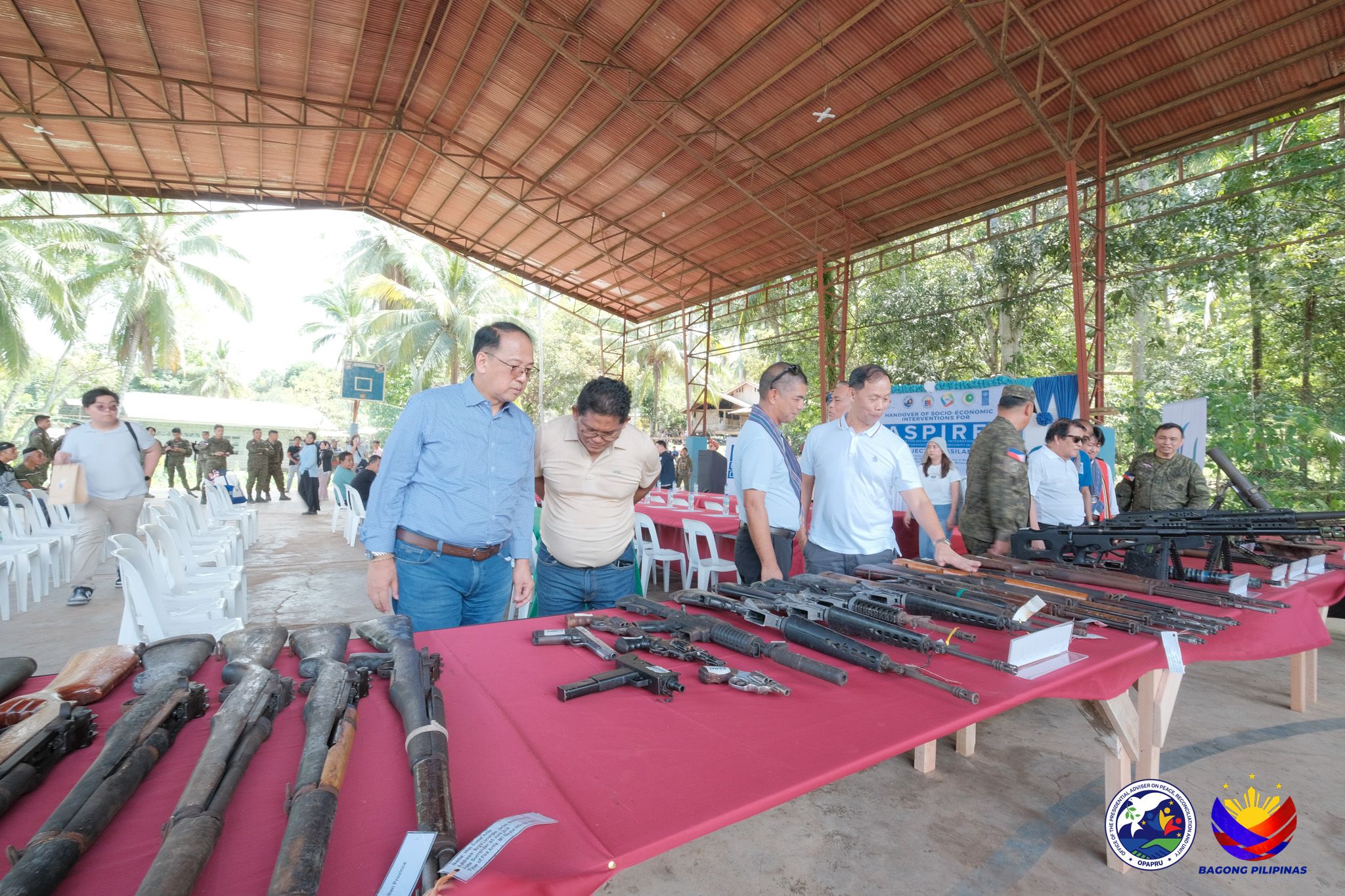Reduction of loose firearms crucial to peaceful BARMM polls, says peace adviser

To ensure that the first ever parliamentary elections in the Bangsamoro Autonomous Region in Muslim Mindanao (BARMM) will be peaceful next year, the government should work on reducing loose firearms which may be used by unscrupulous individuals in poll-related violence.
Office of the Presidential Adviser on Peace, Reconciliation and Unity (OPAPRU) Sec. Carlito Galvez Jr. made the remark following the recently held ASPIRE ceremony in Sumisip, Basilan where residents exchanged their unregistered firearms for agricultural tools and equipment as part of efforts to turn back the old gun culture in the island-province.
“This program is very crucial as we gear up for the first parliamentary elections in the BARMM,” he said.
The people of Bangsamoro will elect its new leaders on May 12, 2025, succeeding the interim Bangsamoro Transition Authority (BTA).
Galvez called on individuals who are still in possession of illegal firearms to participate in the ASPIRE program “to convert your guns into plowshares and bullets as seeds of peace.”
ASPIRE or Assistance for Security, Peace, Integration and Recovery for Advancing Human Security in BARMM aims to reduce the loose firearms in the Bangsamoro Region.
Funded by the Japanese government and facilitated by the United Nations Development Programme (UNDP), the ASPIRE program was launched in Basilan last year under the Joint Normalization Committee (JNC) between the government and the Moro Islamic Liberation Front (MILF).
During the turnover ceremony, Basilan residents surrendered 771 firearms and stenciled 556 weapons. In exchange, they received wheel loaders, four tractors with disc plough, at least 1,500 free-range chickens, solar-powered ice block machines to ensure the freshness of their produce, a mini delivery cargo van, and various farm inputs.
Galvez said the initiative of the residents to turn in their weapons was a “manifestation of the eagerness, commitment, and trust of the beneficiaries to transform their lives” and become peaceful, productive, and empowered members of their communities.
“They now have the power in their hands to chart a better and brighter future for themselves and their families,” he said.
For his part, Daisuke Nihel, Minister at the Embassy of Japan, who represented Japanese Ambassador Kazuya Endo, vowed Japan’s continued support to the Bangsamoro peace process.
“In the ongoing normalization process in the region, Japan remains a resolute and steadfast partner. We likewise support an environment conducive to stability, one where generations of BARMM’s citizens can thrive harmoniously with one another,” he said.
According to him, the ASPIRE project “continues to call attention to the risks of possessing Small Arms and Light Weapons (SALW) and promote alternative livelihood activities to encourage a shift away from reliance on force and harm.”
He said the Japanese government “hopes that our contributions will continue to embolden BARMM’s citizens to sow the seeds of peace and reap its gains with their own will and determination.”
For years, the Japanese government has been helping the Bangsamoro peace process from the negotiation phase to the implementation of the signed peace agreements.